Why Do Cats Sneeze?
A cat sneezing may sound cute and is usually not a cause for concern when it only happens occasionally. However, frequent bouts of sneezing may signify a health issue that needs addressing. A veterinarian will be able to identify what causes cats to sneeze and whether the cause requires treatment.
Just like humans, cats sneeze for a variety of reasons.
- Reaction to a bad smell (including chemicals)
- Tickle in the nose
- Presence of a foreign object (such as hair or grass)
- Reaction to airborne allergens (such as dust)
- Inflamed nasal cavity or sinus
- Infected tooth draining into the sinuses
- Upper respiratory infection
- Cat flu
- Tumor or growth
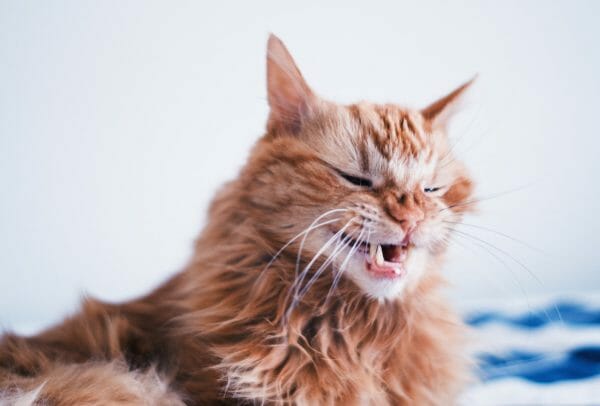
Can An Infection Cause Sneezing in Cats?
If a cat keeps sneezing, there is a possibility that it has an upper respiratory infection. This type of infection is like a cold in a human. An upper respiratory infection is more common in kittens and is often found in animals that come from animal shelters. Vaccinations can prevent many viral infections.
Some of the most common viral infections in cats are as follows.
- Feline calicivirus. This highly contagious virus will often present itself with mouth ulcers and affect the cat’s respiratory tract, potentially causing pneumonia.
- Feline herpes virus. A cat can carry herpes throughout its life, and symptoms may flare up during periods of stress. Treatment can be provided to manage the symptoms. Although feline herpes is contagious and can be spread from infected cats, it cannot spread to humans.
- Feline infectious peritonitis (FIP). Two forms of peritonitis occur in cats cats: wet (effusive) and dry (non-effusive). Effusive peritonitis causes fluid to accumulate in the cat’s chest and abdomen. The virus is closely associated with feline coronavirus, which can mutate into this potentially fatal condition.
- Feline leukemia. Leukemia is an extremely contagious condition that affects the function of a cat’s immune system leaving it open to picking up other infections. This condition is often fatal.
- Feline immunodeficiency virus (FIV). FIV attacks a feline’s immune system and manifests in a similar manner to feline leukemia, depleting the cat’s ability to fight infection. Once infected, a cat may take a long time to display symptoms, if it ever does. A cat that does have symptoms may seem like it is constantly ill. There is no cure for FIV, and it is a lifelong condition. Secondary infections will need to be managed.
- Bordetella. When multiple cats live in close quarters, there is an increased risk of contracting Bordetella bronchiseptica through the transferal of saliva or sneeze droplets. The infection causes mild sneezing and coughing. In rare cases, the condition may lead to pneumonia, which can be life-threatening.
- Chlamydia. Feline chlamydia causes conjunctivitis along with nasal discharge and sneezing. To treat the condition, the cat will require antibiotics.
- This serious health condition is caused by bacteria acting as a parasite within the cat’s blood and can cause anemia, along with infections throughout the body including the respiratory tract, the reproductive system, and the urinary tract. The condition can be treated with antibiotics.
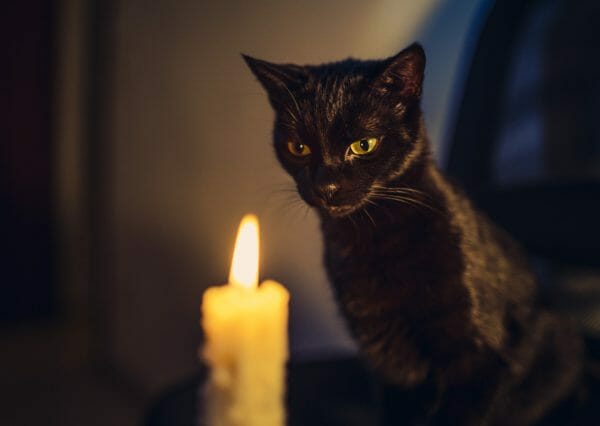
Can Cats Have Allergies That Make Them Sneeze?
Infrequent sneezes may be the result of irritation of the nasal passage. If there appears to be a pattern to a cat’s sneezing, it may be the result of the presence of an irritant or allergen. Pay attention to the times when a cat is sneezing. For example:
- Does the cat sneeze when a candle is lit?
- During household cleaning, is the cat prone to sneezing fits?
- When the cat leaves a litter box, is it more likely to sneeze?
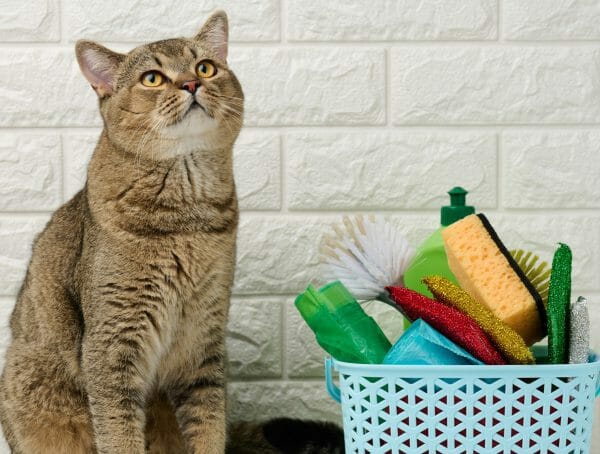
Some of the many potential allergens or irritants that can bother cats are listed below. When an allergy is the underlying cause of the cat sneezing, itchy skin may also be present.
- Perfume
- Dust
- Mold
- Cat litter (particularly any that creates dust)
- Cleaning products
- Pollen
- Cigarette smoke
- Candles
- Mold
- Pest sprays
Can Constant Sneezing in Cats Be Due to Dental Disease?
In some cases, dental disease can be a cause of a cat sneezing. This is particularly an issue when it appears in large areas of the mouth. Dental disease will affect the cat’s teeth and gums, along with the roof of its mouth. This can cause sneezing along with other respiratory symptoms, such as coughing.
A cat with a severe occurrence of dental disease may require a tooth extraction. In the best-case scenario, the cat should receive cleaning and treatment from a veterinarian until the issue is fully resolved.
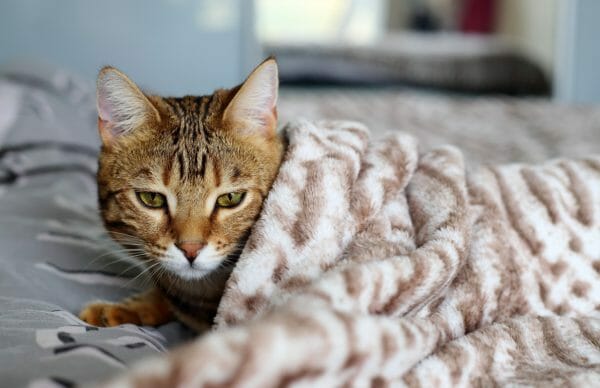
Excessive Cat Sneezing Diagnosis
Often, sneezing is only one symptom of many. To help identify cat sneezing causes, it is helpful to look at the additional symptoms that may help to paint a fuller picture of the exact condition.
Sneezing may occur in conjunction with these symptoms.
- Nasal discharge that is green or yellow
- Fever
- Discharge around the eyes
- Swelling around the eyes
- Difficulty breathing
- Enlargement of the lymph nodes
- Drooling
- Wheezing
- Coughing
- Fatigue
- Decreased appetite
- Weight loss
- Depression
- Diarrhea
- Poorly maintained coat
When to See a Veterinarian
If a cat sneezes occasionally and does not have any other notable symptoms, it should be monitored for several days. During this period, the cat should be kept indoors and any changes in its health should be closely scrutinized. If the frequency of the sneezing increases, if the cat sneezes blood, or if any of the above symptoms appear, seek the assistance of a veterinarian as soon as possible.
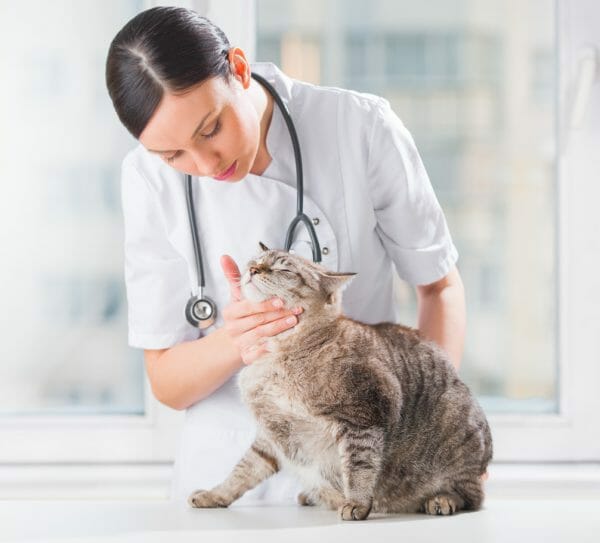
Cat Sneezing Treatment
The treatment that the veterinarian will suggest will vary depending on the exact cause of the sneezing. A veterinarian may recommend providing plenty of fluids and encouraging the cat to drink more. Treatment may also include prescription medications (such as antibiotics, antihistamines, or steroids) if appropriate.
Other home remedies for cat sneezing and coughing include the following suggestions.
- Use a damp cloth to remove any discharge from the cat’s face.
- Keep the home free from dust.
- Moisten the air using a humidifier.
- Avoid smoking in the home.
- Avoid using perfume and aerosols.
- Warm up the cat’s food to encourage it to eat.
- Use a brand of cat litter that does not produce excessive dust.



